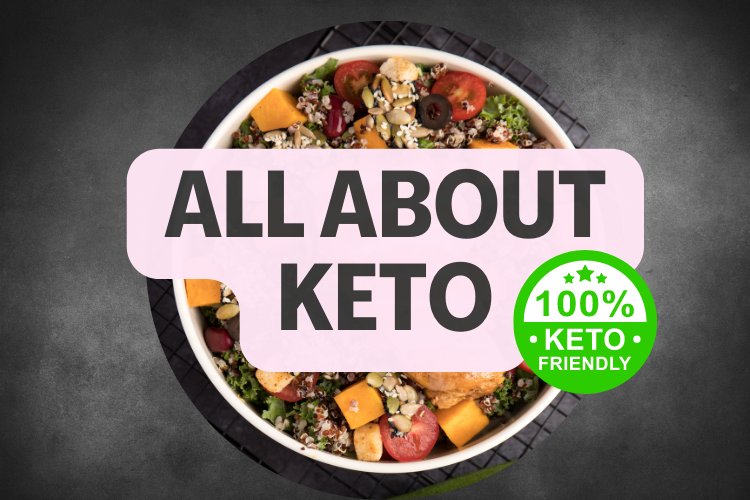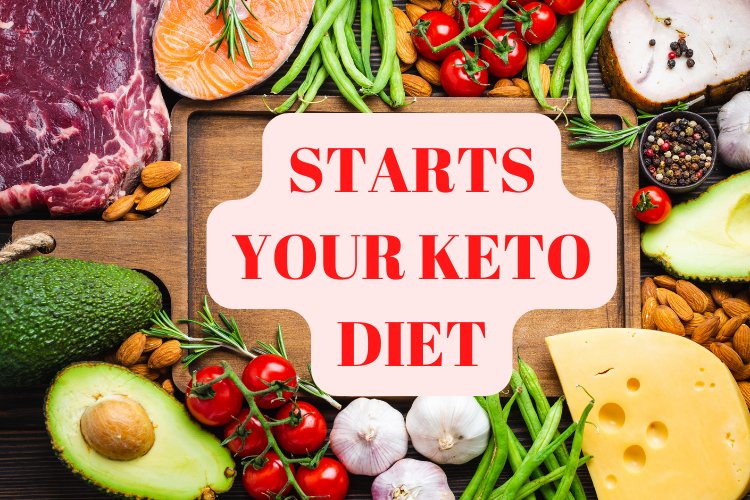All about Keto Diet - Inside Ketogenic & High-Fat Diets
KETO Diet plan ,Inside Ketogenic and High-Fat Diets ,What is the keto diet plan, Ketogenic diet, The Ketogenic Diet: A Detailed Beginner's Guide to Keto

All about Keto Diet - Inside Ketogenic & High-Fat Diets
What is Ketosis?
Ketosis (KETO DIET) is a metabolic state in which the body uses fat as its primary source of energy. When you're in ketosis, your body is using both glucose and ketones for energy. Glucose is from carbohydrates and ketones are from fat.In ketosis, your body switches from using glucose as its main energy source to using ketones.
Ketones are produced when the body breaks down fat. When your body is in ketosis, you may experience an increased hunger and an increased ability to burn fat.
Ketosis is a state of metabolism where the body produces ketones in the blood. When the body enters ketosis, it switches from using glucose for energy to using ketones, which are derived from fat. Ketones are a clean and efficient energy source and can provide fuel for prolonged fasting or exercise.
Ketoacidosis is a medical emergency that can occur when the body doesn't have enough insulin or when the body produces too much ketones.Ketosis is a metabolic state achieved when the body has run out of glucose stores and has to turn to using fat as its primary energy source.

When this happens, the body produces ketones, which are energy molecules that the brain and other organs can use. Ketogenic diets are effective for a variety of reasons. They can help you lose weight, improve your mood, and increase your energy levels.There are many different types of ketogenic diets and each has its own benefits and drawbacks.
Some popular types of ketogenic diets include the high-fat, low-carbohydrate ketogenic diet, the modified Atkins diet, and the low-glycaemic index treatment diet. Each of these diets has its own set of benefits and drawbacks and it is important to choose the right one for your individual needs. It is also important to be aware of any potential side effects that may occur while following a ketogenic diet.
Does Ketogenic diets help you lose weight
Yes, ketogenic diets can help you lose weight. They can help you improve your mood and energy levels, as well as help you lose weight. There are many different types of ketogenic diets, each with its own benefits and drawbacks. It is important to choose the right one for your individual needs, as well as be aware of any potential side effects that may occur while following a ketogenic diet.
Ketogenic diets can help you lose weight in a variety of ways. They can help you lose weight by helping you to burn more calories, by helping you to feel fuller longer, and by increasing your energy levels. Additionally, ketogenic diets can have a variety of benefits that can be helpful for a variety of reasons. There are many different types of ketogenic diets and each has its own set of benefits and drawbacks.
Ketogenic diets for diabetes and prediabetes
Ketogenic diets can also help you lose weight by improving your blood sugar levels. When you have diabetes, your body doesn't produce enough insulin or doesn't use insulin properly. This can cause your blood sugar levels to become too high. When you have prediabetes, your blood sugar levels are higher than normal but not high enough to be diagnosed as diabetes.
ketogenic diets can help to regulate blood sugar levels. When blood sugar levels are regulated, it can help to prevent or delay the onset of type 2 diabetes. Additionally, ketogenic diets can help to reduce the severity of symptoms in people who have type 2 diabetes. There are many different types of ketogenic diets, each with its own set of benefits and drawbacks.
Ketogenic diets have been shown to be effective for weight loss in a variety of ways. One study found that a high-fat, low-carbohydrate ketogenic diet resulted in more weight loss than a low-fat diet after one year. Additionally, a ketogenic diet has been shown to be effective for weight loss in people with diabetes and prediabetes.
A ketogenic diet can help you lose weight by helping you to burn more calories, by helping you to feel fuller longer, and by increasing your energy levels.

Foods to avoid
The most important thing to remember when following a ketogenic diet is to make sure that you are eating a balanced and varied diet. You should avoid foods that are high in carbs and sugars. When you are following a ketogenic diet, you should focus on eating healthy fats and protein. Some good foods to eat on a keto diet include: fish, poultry, eggs, nuts, seeds, and avocado.
Avoid eating high-carbohydrate foods while on a keto diet to help reach your weight loss goals. Foods like fruits, vegetables, and whole grains are all good choices when following a keto diet. When following a keto diet, you should also make sure to get plenty of protein, healthy fats, and fiber. Fiber can help you feel fuller longer and can also help to regulate your blood sugar levels.
The body switches from burning glucose to burning fat for energy. When this happens, the body produces ketones, which are energy molecules that the brain and other organs can use. Ketogenic diets are effective for a variety of reasons. They can help you lose weight, improve your mood, and increase your energy levels.

Benefits of KETO Diet
- Ketosis
Ketones are produced naturally in our bodies when we eat foods high in fat and low in carbs. When we consume these types of foods, our bodies begin producing ketones. Ketones are produced when our liver breaks down fats into fatty acids and then uses them for energy. In order to enter ketosis, you need to have a minimum amount of body fat. If you don't have enough fat stored in your body, you won't produce ketones.
- Fat Loss
When you're in ketosis, your body burns fat instead of sugar for fuel. Your brain will use ketones for energy instead of glucose (blood sugar). This means that you'll lose weight without trying. You may feel hungry while in ketosis because your body is burning fat for fuel.
- Weight Management
The diet helps people manage their weight. A study published in the journal Diabetes Care showed that overweight adults who followed a ketogenic diet lost about 10 pounds over three months. Another study found that obese children who followed a ketogenic-based diet lost about 5 percent of their total body weight after six months.
- Brain Health
A ketogenic diet may help protect your brain from Alzheimer's disease. One study found that mice who ate a ketogenic diet had fewer brain plaques than those who didn't. Other studies suggest that eating a ketogenic diet could improve memory loss associated with aging.
- Heart Health
Eating a ketogenic diet may reduce your risk of heart disease. Studies show that people who follow a ketogenic diet have lower levels of bad cholesterol and higher levels of good cholesterol. Research suggests that following a ketogenic diet might also reduce the risk of diabetes and stroke.
- Cancer Prevention
Some research shows that a ketogenic diet may prevent cancer. A study published in Nutrition Journal found that rats who ate a ketogenic-based meal had significantly reduced colon cancer compared to animals who ate a standard diet. Another study found that mice who were given a ketogenic diet had less breast cancer cells than mice who ate a normal diet.
- Anti-Inflammatory Effects
One study found that people who followed a ketogenic dietary plan had lower levels of inflammatory markers than those who did not. Inflammation is linked to many conditions, including obesity, type 2 diabetes, and cardiovascular disease.













